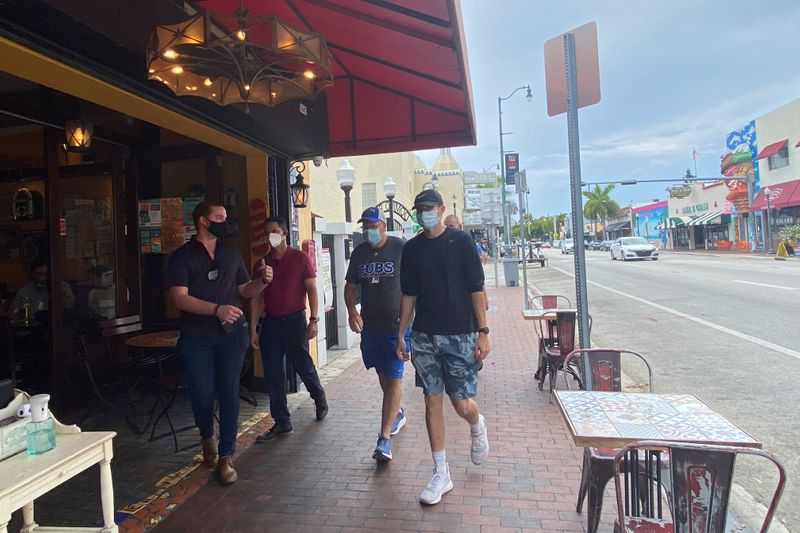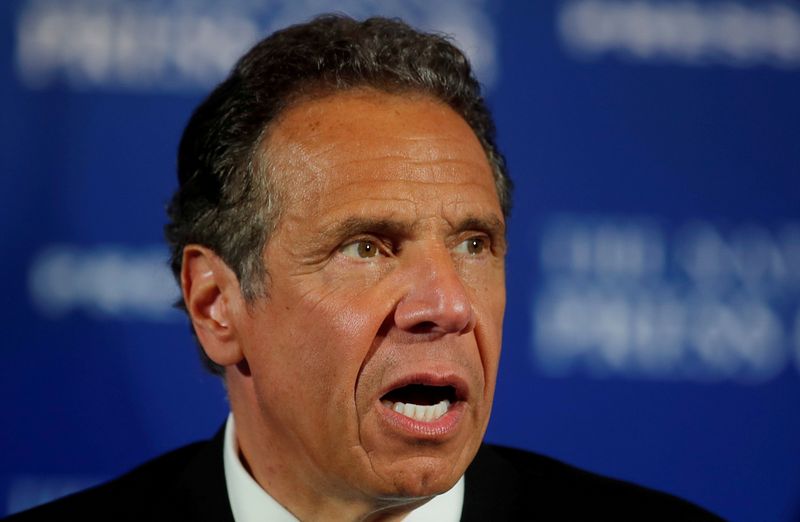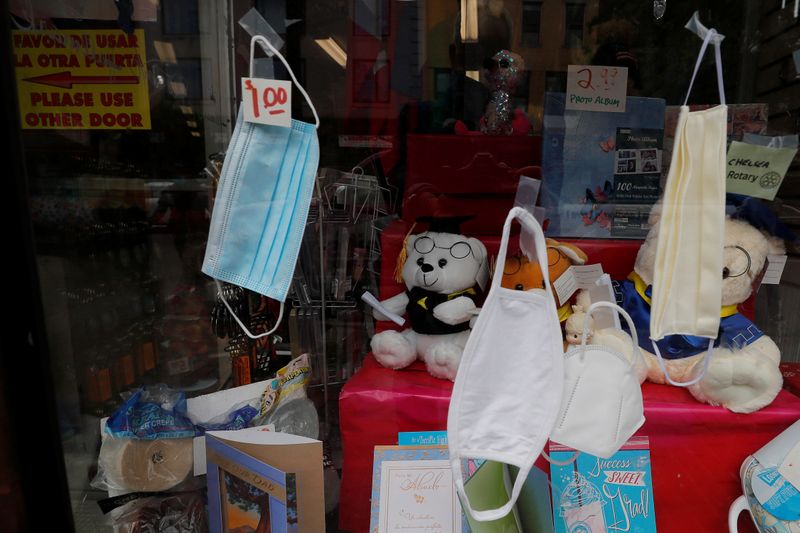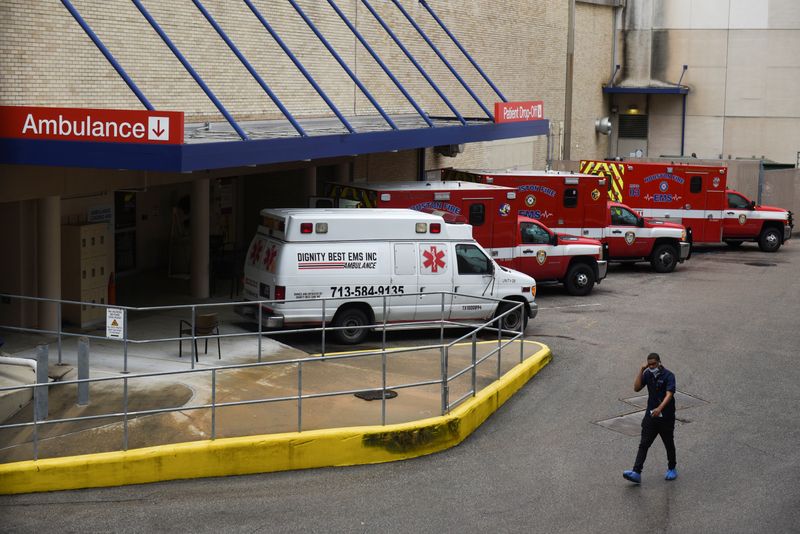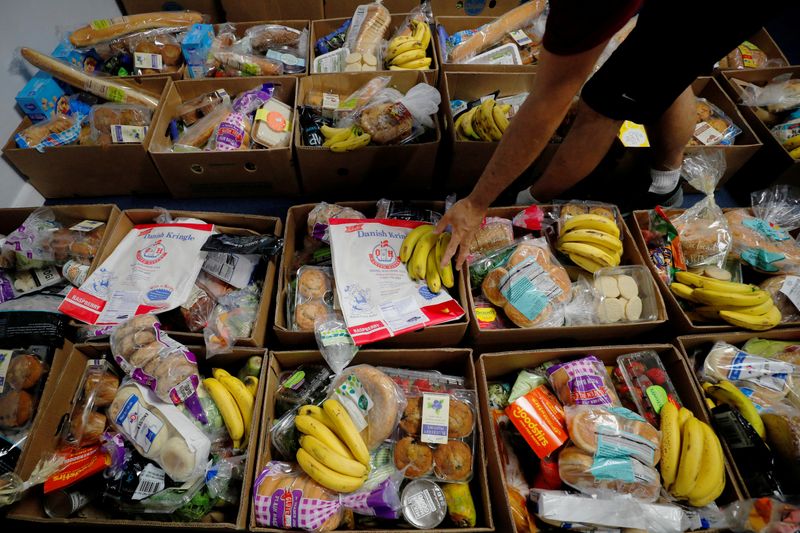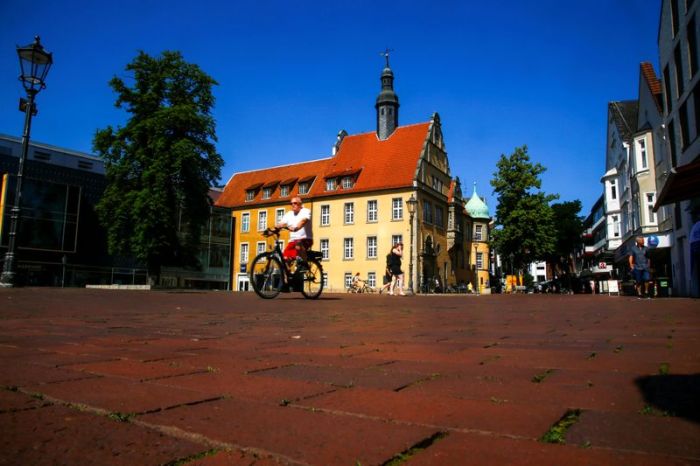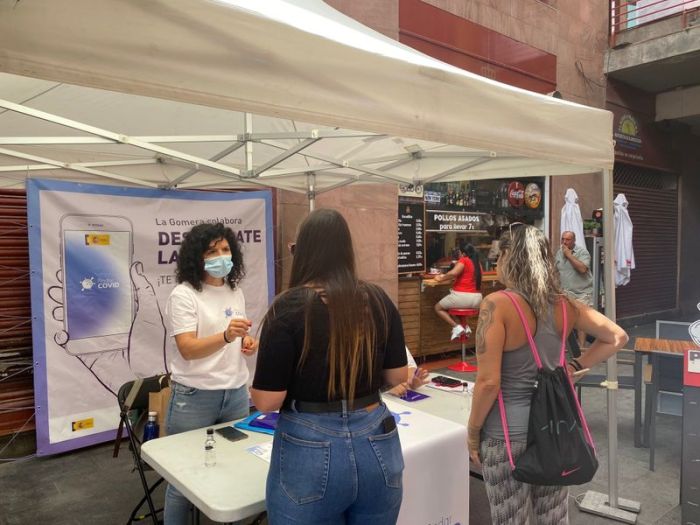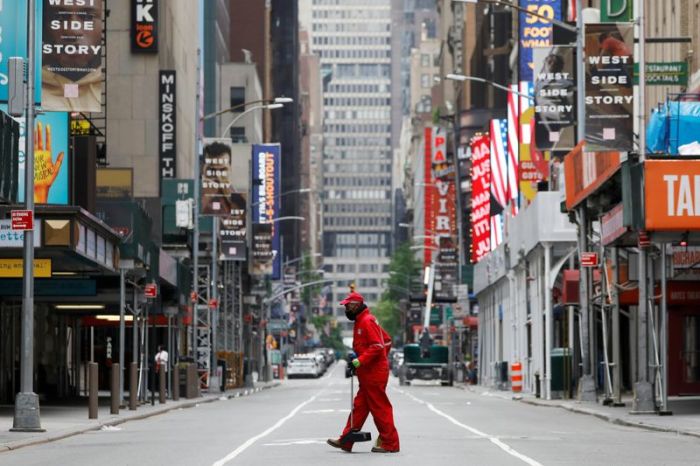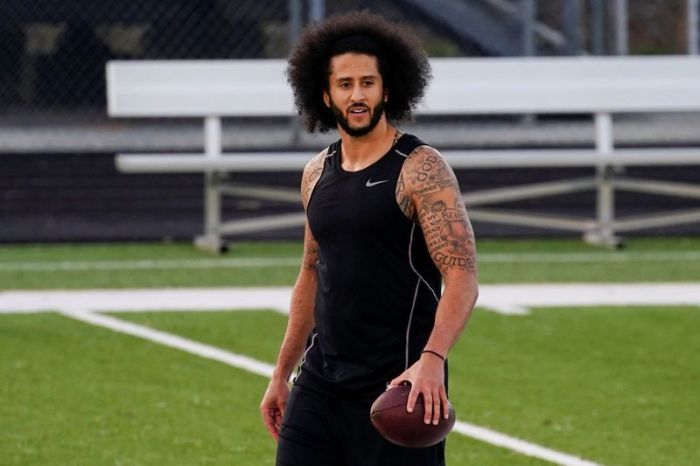(Reuters) – Florida’s greater Miami area became the latest U.S. coronavirus hot spot to roll back its reopening, ordering restaurant dining closed on Monday as COVID-19 cases surged nationwide by the tens of thousands and the U.S. death toll topped 130,000.
Restaurants also were targeted for a weekend crackdown on coronavirus enforcement in California, where hospitalizations for COVID-19 have jumped 50% over the past two weeks and the state capitol building in Sacramento was temporarily closed for deep cleaning.
For an eighth straight day, Texas registered an all-time high in the number of people hospitalized at any one moment with the highly contagious respiratory illness, up more than 500 admissions from the day before to nearly 8,700.
The U.S. military said it would deploy a special 50-member medical team, including emergency room and critical-care nurses and respiratory specialists, to a hard-hit area in and around San Antonio.
California, Texas and Florida are all among two dozen states reporting high infection rates as a percentage of diagnostic tests conducted over the past week, an alarming sign of a virus still spreading largely unchecked throughout much of the country.
“It’s a serious situation that we have to address immediately,” Dr. Anthony Fauci, the nation’s top infectious disease specialist and member of the White House coronavirus task force, said during a live internet interview on Monday.
The Miami-Dade County emergency restaurant closure was ordered on Monday by Mayor Carlos Gimenez, the top official in a metropolitan area that has reported some 48,000 COVID-19 infections to date among its 2.8 million residents.
An updated statement late on Monday said the forthcoming emergency order will allow outdoor dining to continue, wherever possible, with tables of no more than four patrons, and music at a level that does not require shouting to prevent the emission of potentially dangerous airborne droplets.
The move reimposing rules to permit carry-out and delivery service only, just weeks after eateries began welcoming customers back to their favorite tables, booths and patios, left struggling restaurateurs even more worried about the survival of their businesses.
“We’re burned out emotionally, we’re burned out financially, and we’re burned out from the trauma of seeing everything that’s happening,” said Karina Iglesias, a partner at the popular Spanish restaurants Niu Kitchen and Arson in downtown Miami.
Michael Beltran, chef-partner at Ariete Hospitality Group, which owns a handful of other popular Miami restaurants, was struggling with having to tell most of his 80 employees – many of them just rehired for reopening – that they would again be unemployed.
“From what they told me, I did the proper things (to reopen), and now we’re at this point,” Beltran said.
Graphic – Tracking the novel coronavirus in the U.S.: https://graphics.reuters.com/HEALTH-CORONAVIRUS-USA/0100B5K8423/index.html
RISING CASES AND ‘POSITIVITY’
COVID-19 infections are on the rise in 39 states, according to a Reuters analysis of cases over the past two weeks, with the country as a whole averaging some 50,000 new cases nearly every 24 hours in recent days. Sixteen states have posted record daily case counts so far this month.
More states are also reporting a troubling increase in the percentage of COVID-19 diagnostic tests that come back positive – a key indicator of community spread that experts refer to as the rate of “positivity.”
Two dozen states, mostly in the South and West, have averaged positivity rates over the past week exceeding 5%, a level the World Health Organization considers to be concerning, data collected by Reuters shows.
Several states were averaging double-digit rates and climbing, including Arizona at 26%, Florida at 19% and Mississippi at 17%.
California’s positivity rate has also risen over the past two weeks. But Governor Gavin Newsom on Monday cited a 50% two-week spike in hospitalizations – with 5,790 COVID-19 patients currently admitted – as an impetus for beefed-up enforcement actions during the Fourth of July holiday.
Graphic – Where coronavirus cases are rising in the United States: https://graphics.reuters.com/HEALTH-CORONAVIRUS/USA-TRENDS/dgkvlgkrkpb/index.html
ENFORCEMENT AND ROLLBACKS
He said state regulators visited nearly 6,000 bars and restaurants over the weekend to ensure compliance with rules barring indoor seating or the reopening of any establishment that serves alcohol without food.
The nationwide loss of life from COVID-19 surpassed 130,000 on Monday, and the U.S. Centers for Disease Control and Prevention forecast that the death toll could reach 160,000 later this month.
The disquieting surge in new cases has prompted many local leaders to slow down or roll back business reopenings in hopes of curbing infection rates that have started to overwhelm hospitals in some areas.
“We can tamp down the spread if everyone follows the rules, wears masks and stays at least six feet (2 m) apart from others,” the Miami mayor said in a statement announcing his emergency order, which also closed ballrooms, banquet halls, fitness centers and short-term housing rentals.
Colleges and universities have likewise been forced to adjust reopening plans. Harvard University said on Monday all undergraduate fall semester classes would be taught online and only 40% of the undergraduate student body would be permitted to live on campus.
Also on Monday, Atlanta Mayor Keisha Lance Bottoms, one of several politicians reported under consideration by presumptive Democratic presidential nominee Joe Biden as a running mate for the Nov. 3 election, joined a growing list of well-known U.S. public figures diagnosed with COVID-19.
In an MSNBC interview, Bottoms, 50, said she had not developed severe symptoms, adding she and her family wear face coverings in public and are mindful about social distancing and washing their hands.
“I’m still processing all of this. I’m shocked,” she said.
(Reporting by Lisa Shumaker, Doina Chiacu, Peter Szekely, Maria Caspani, Gabriella Borter, Zachary Fagenson, Sharon Bernstein, Caroline Humer, Idrees Ali and Kanishka Singh; Writing by Gabriella Borter and Steve Gorman; Editing by Howard Goller, Bill Berkrot, Peter Cooney and Michael Perry)

